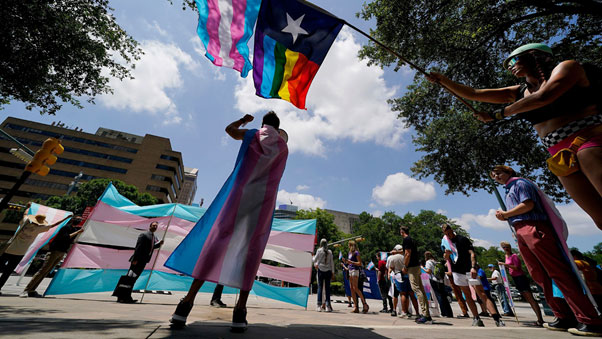
In a recent development, the Texas Supreme Court has granted permission for a controversial state law banning gender-affirming care for transgender minors, which includes measures such as puberty blockers, hormones, and surgeries, to be enforced. At the same time, it considers a legal challenge against the statute.
This decision follows a previous ruling by a judge last Friday, which temporarily halted the law's implementation in response to a challenge filed by families of transgender children and medical professionals. The law was initially slated to take effect on the upcoming Friday.
The legal team representing the families sought an emergency order from the state's highest court to once again halt the law while the appeal is being considered. Regrettably, the court declined the request without explaining its decision.
Proponents of these bans argue that such treatments lack sufficient scientific evidence and pose potential risks. In contrast, mainstream medical organizations in the United States have opposed these restrictions, asserting that gender-affirming care plays a crucial role in enhancing the mental well-being of transgender patients and reducing the risk of suicide.
In her decision last Friday, District Judge Maria Cantu Hexsel of Travis County in Austin opined that the families would likely succeed in their challenge against the law. She contended that the law directly contradicts parents' fundamental right to make decisions concerning their children's healthcare. Additionally, Hexsel, a Democrat elected to her position, found that the law discriminates against transgender youth based on their transgender identity, interfering with the doctor-patient relationship and healthcare providers' ability to practice medicine.
It's worth noting that judges have temporarily blocked several similar state laws. However, in a different turn of events, a federal appeals court reinstated Alabama's ban on gender-affirming care for minors in August.



